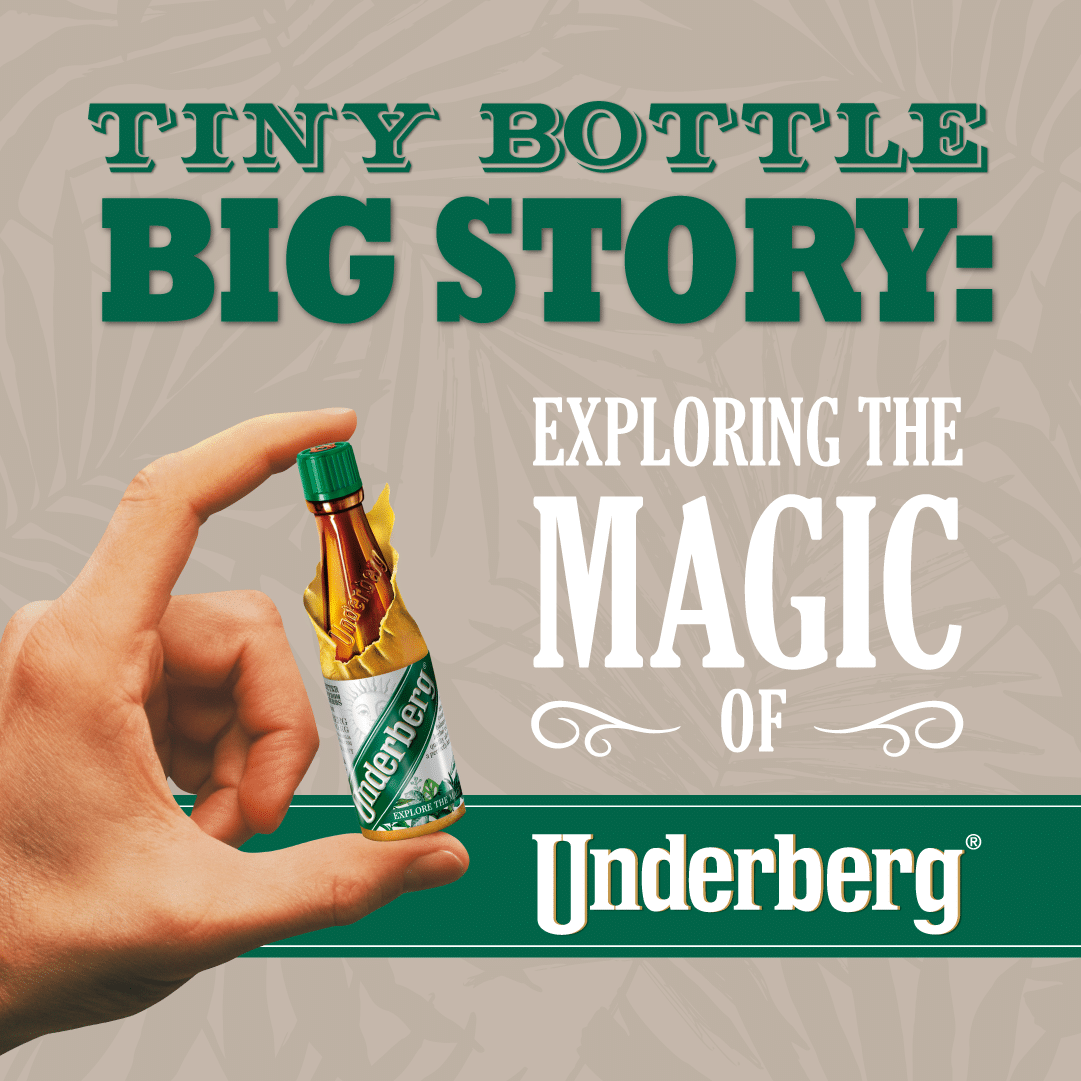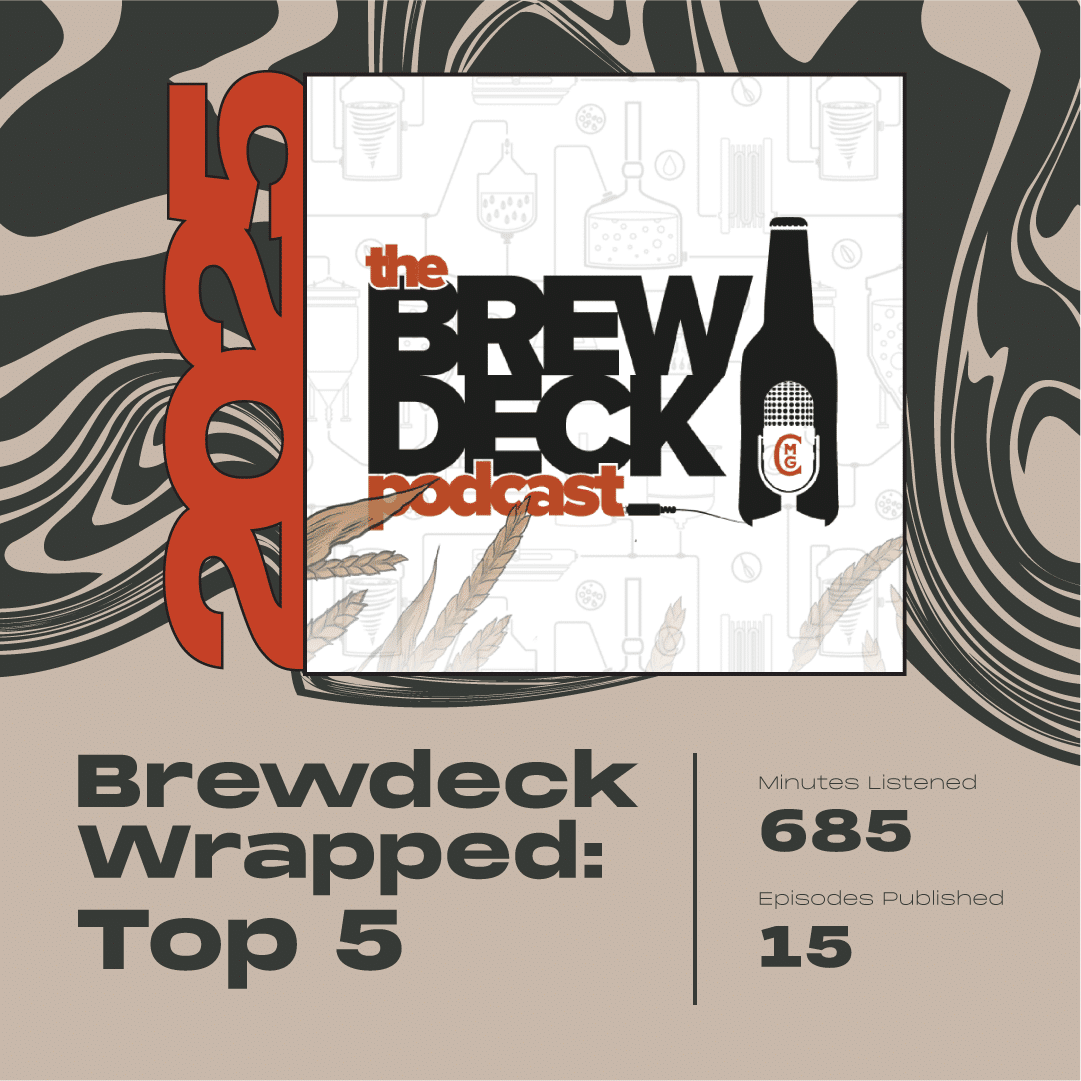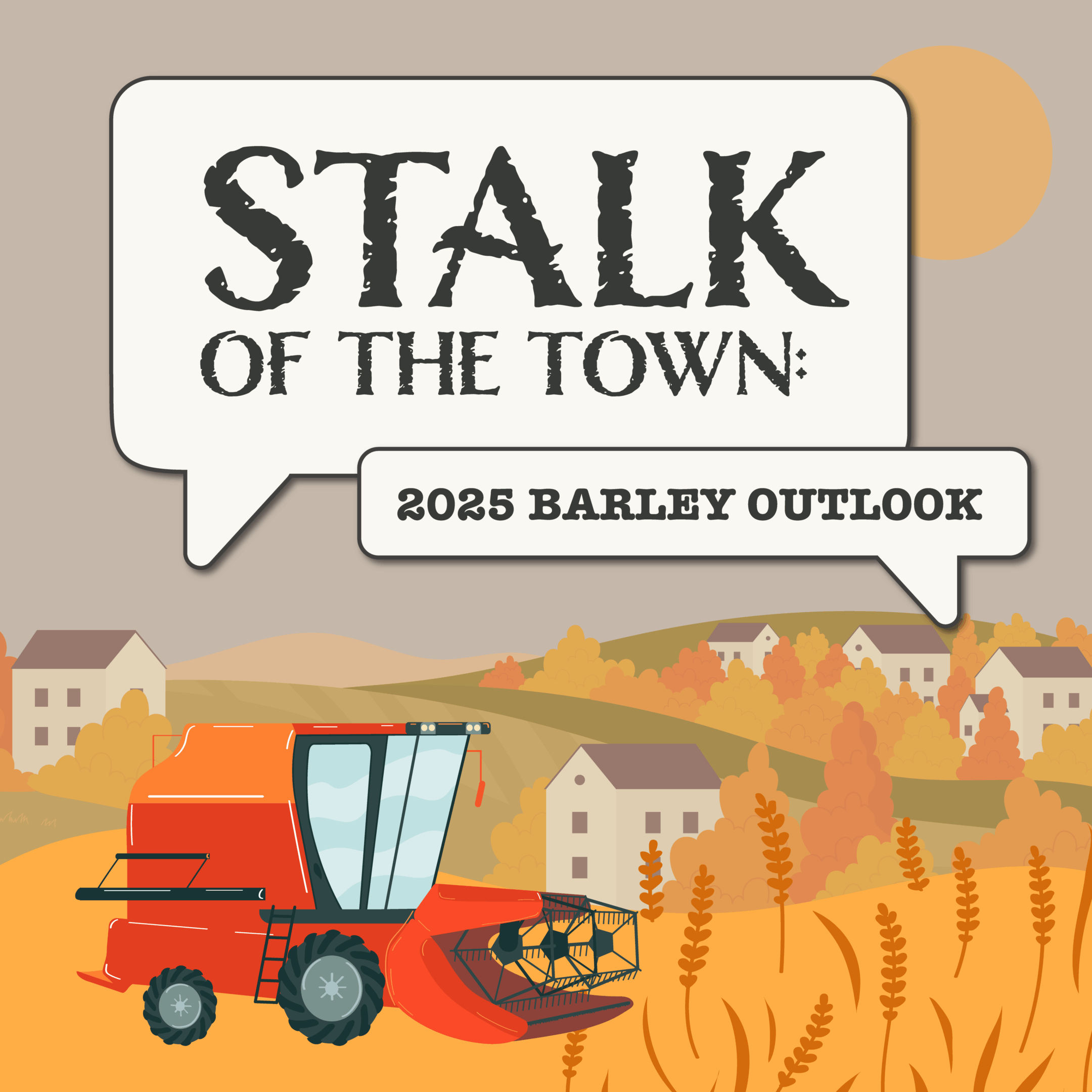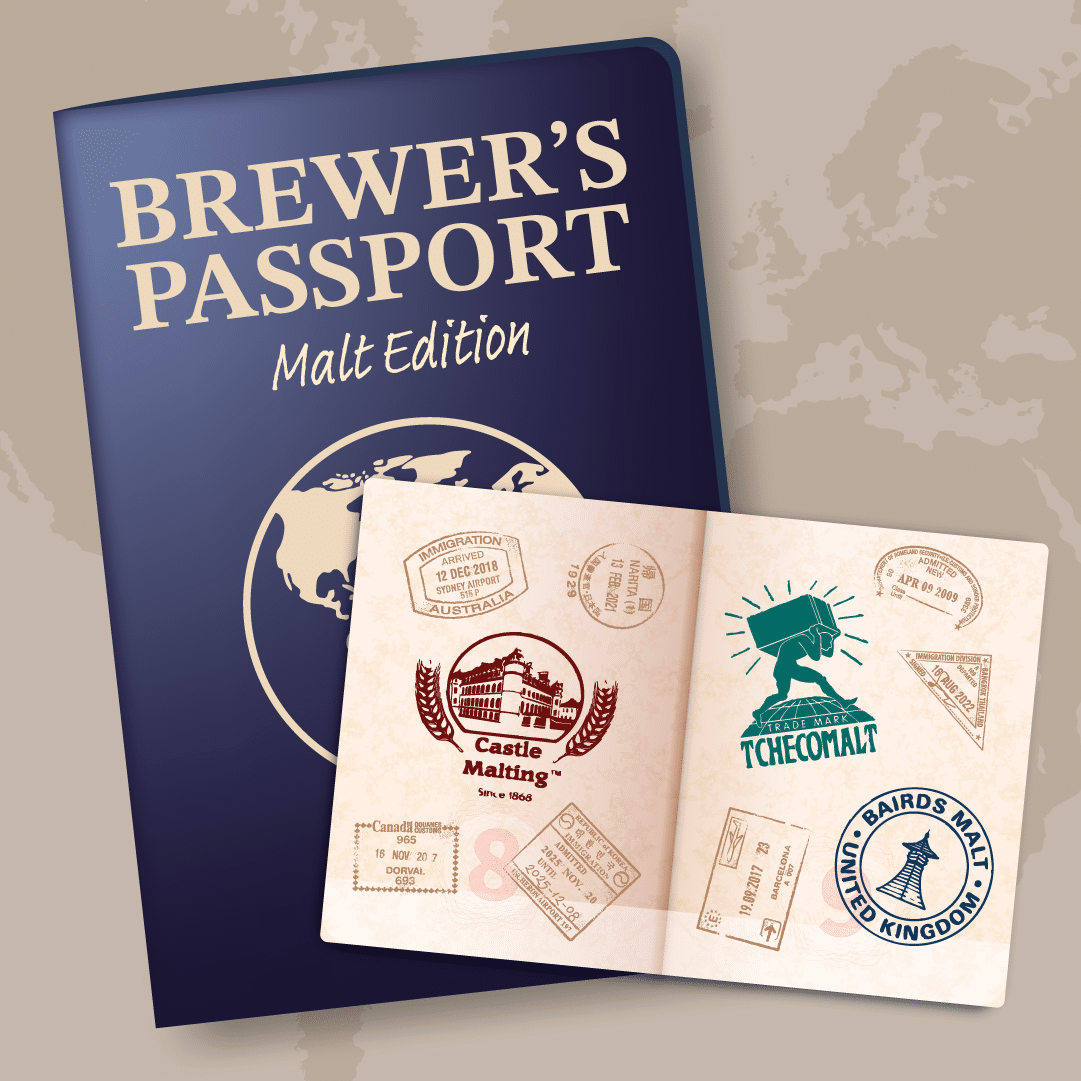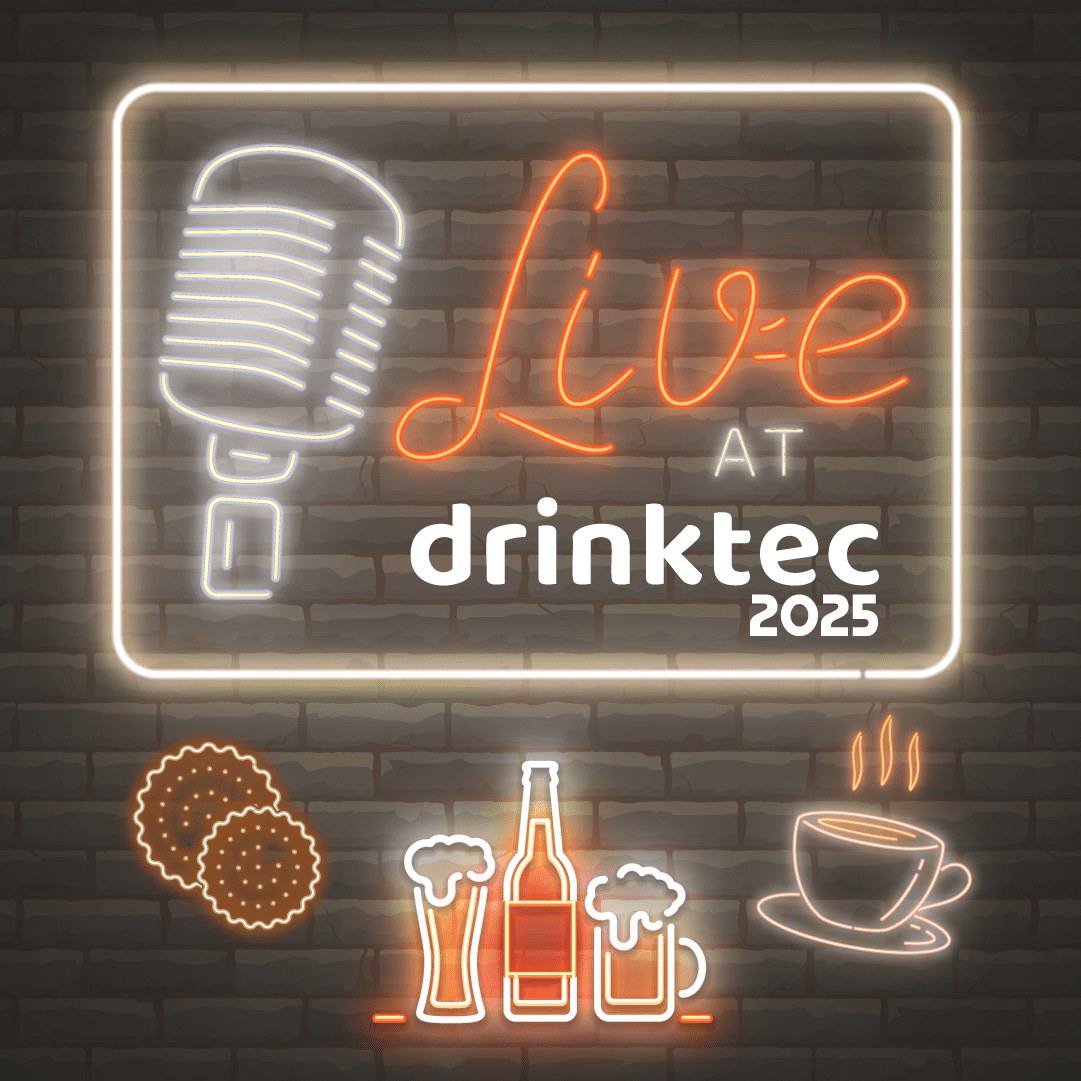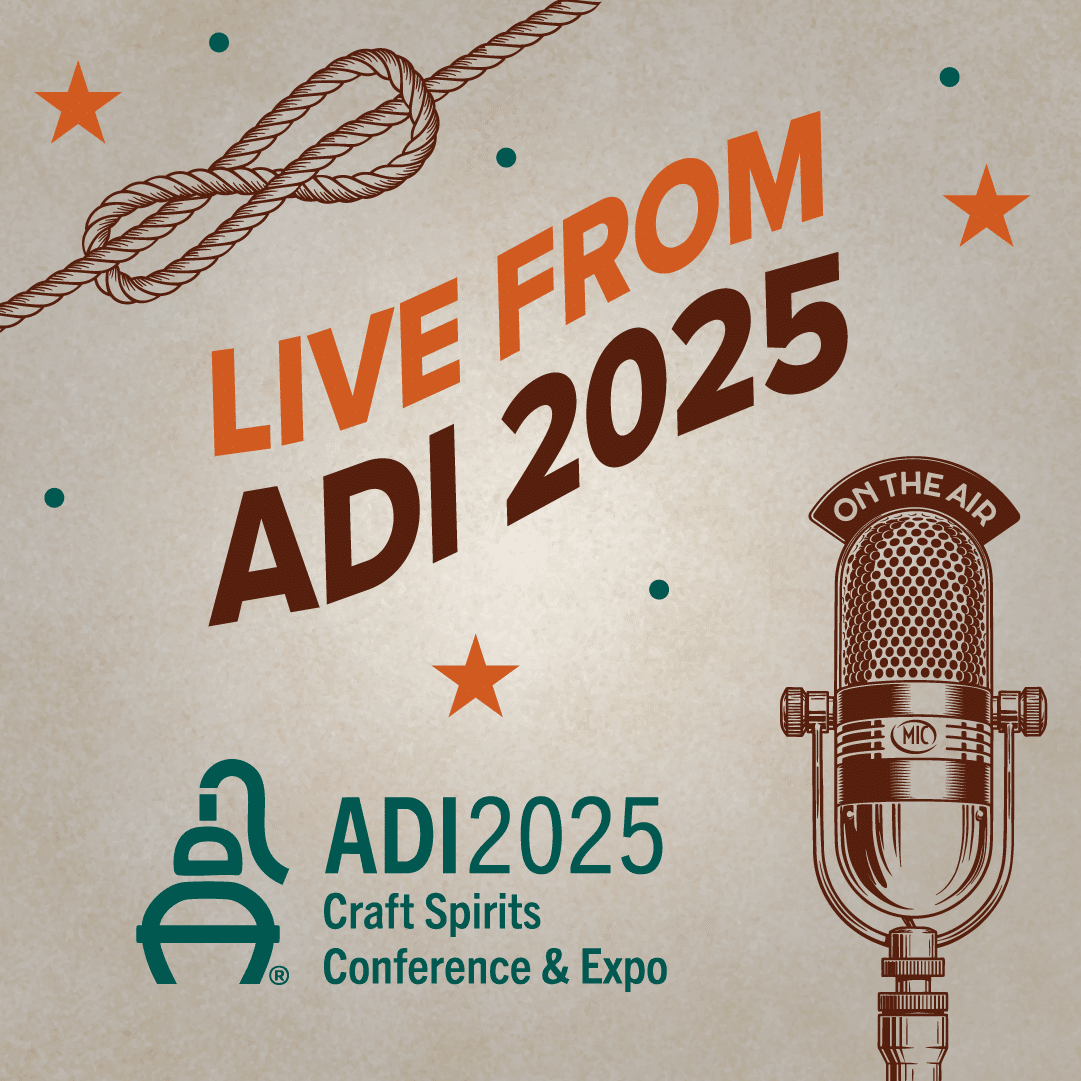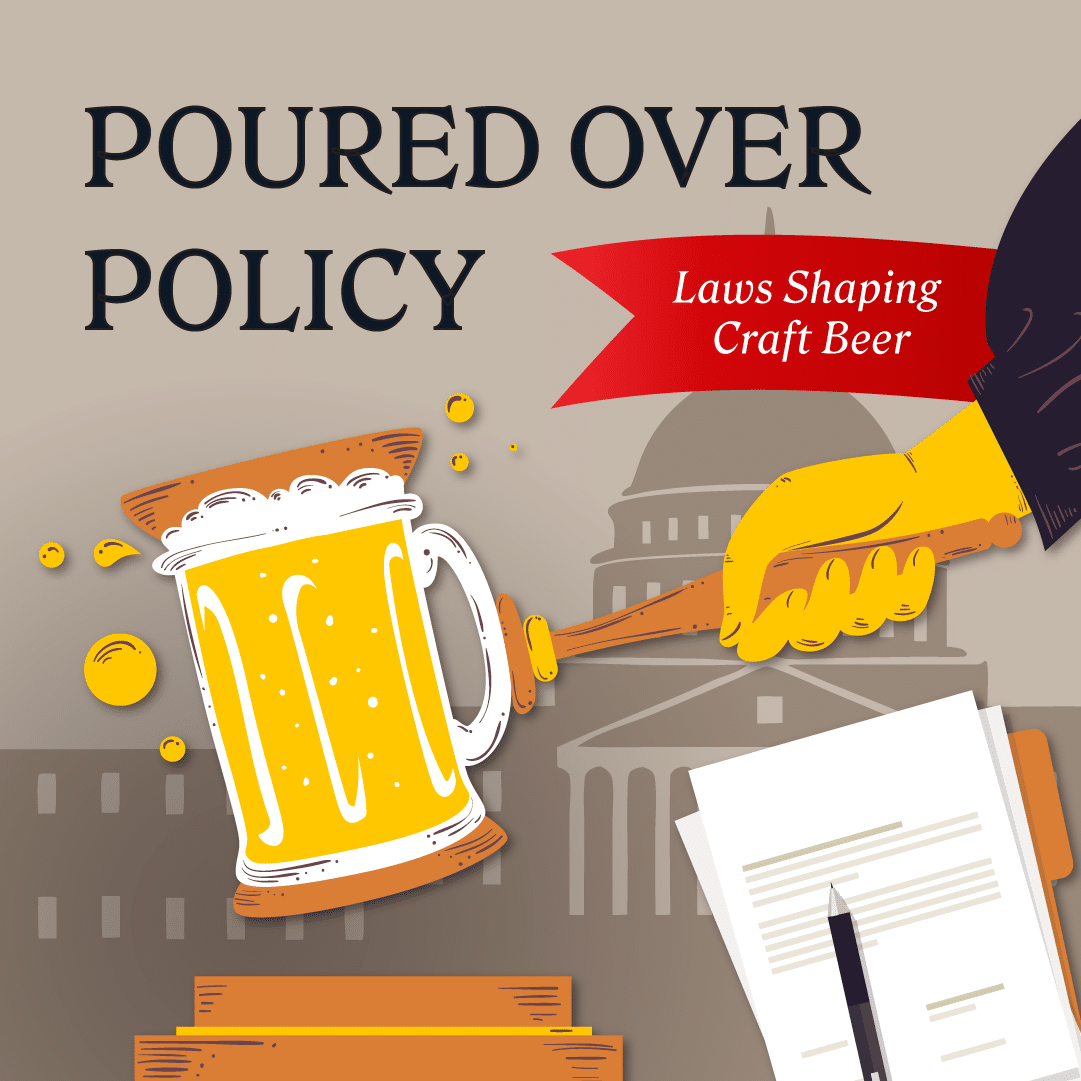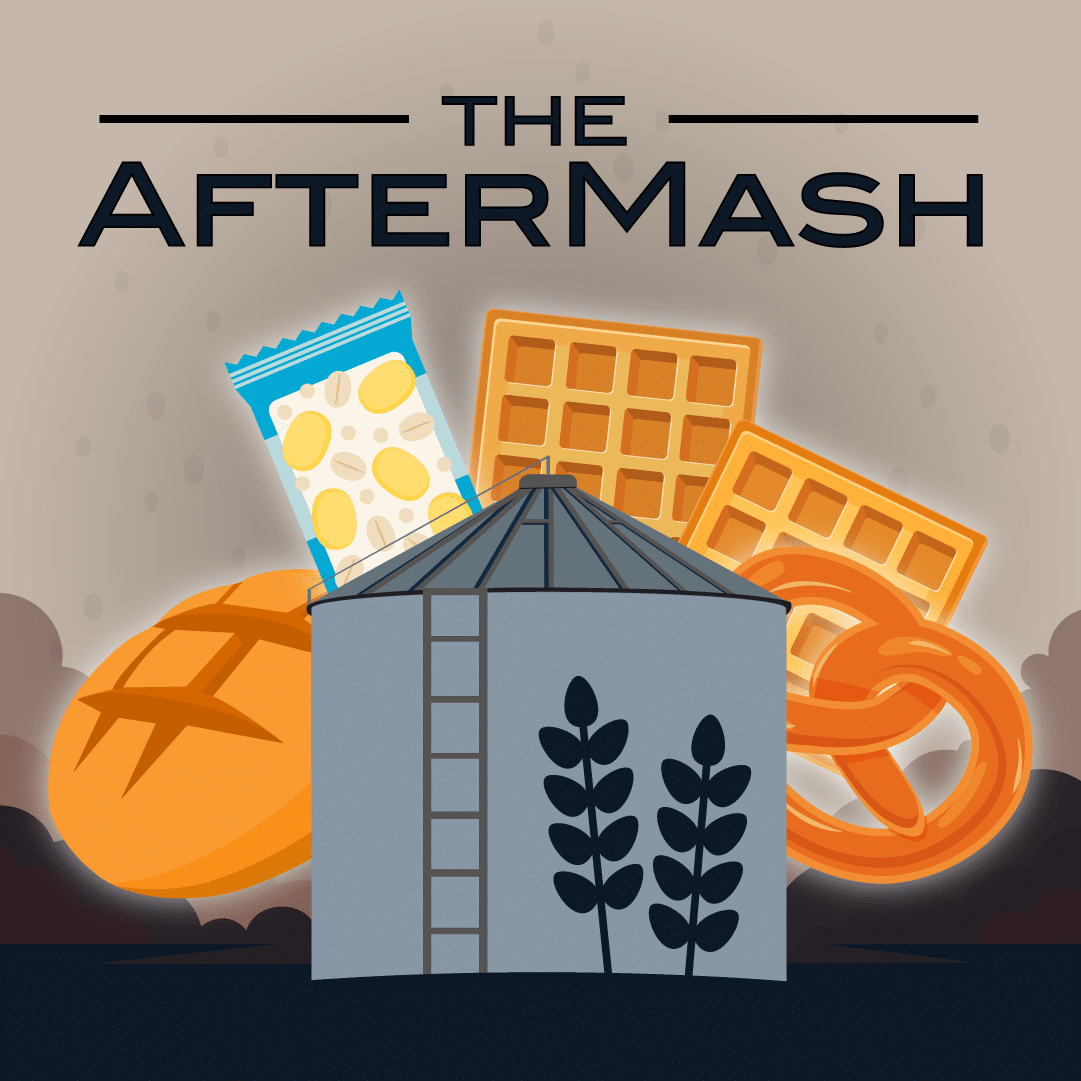
PODCAST GUEST
Day Bracey
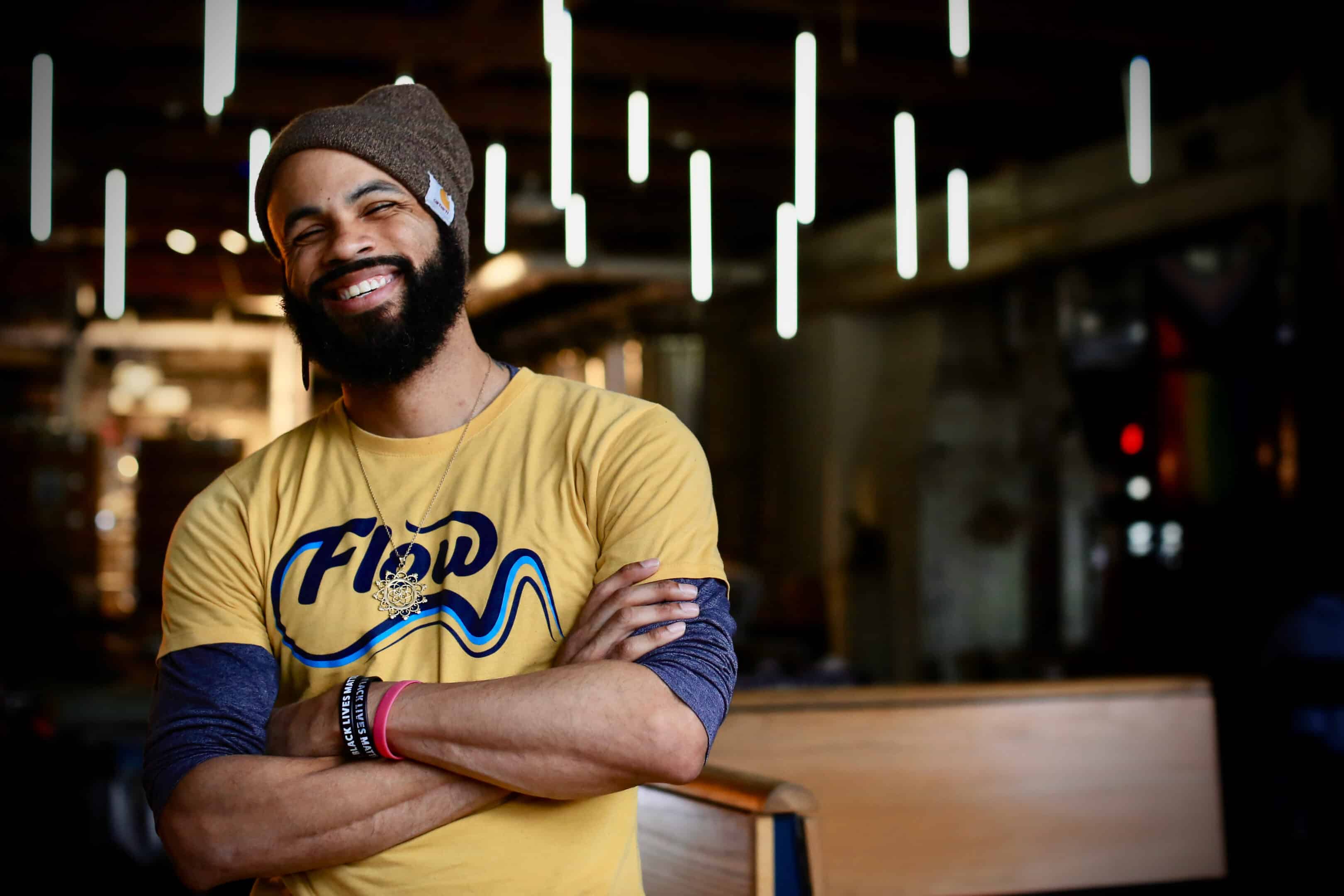
MORE EPISODES
SEASON 5, EPISODE 16: BEST OF THE FEST – BARREL & FLOW
PODCAST HOSTS:
HEATHER JERRED – TERRITORY MANAGER, COUNTRY MALT GROUP
CHEYENNE WEISHAAR – SALES REPRESENTATIVE, COUNTRY MALT GROUP
JUSTINE JOHNSON – EVENTS MANAGER, COUNTRY MALT GROUP
GUEST:
DAY BRACEY – FOUNDER, BARREL & FLOW FESTIVAL
Key Points From This Episode:
- When and how Barrel & Flow came to be.
- What makes their event successful.
- How they create a festival environment that is fun and safe for everyone.
- Why they have pay rate transparency for their vendors and artists.
- How has the festival evolved over the years.
- What we can expect from this year’s participating breweries and performers.
Use code “brewdeck10” for 10% off!
Transcript - Best of the Fest
EPISODE S.5, E.16
[BEST OF THE FEST: BARREL & FLOW]
Heather (00:09):
Welcome back to another episode of The BrewDeck Podcast. I am your host, Heather. I am joined by Cheyenne. Hi, Cheyenne.
Cheyenne (00:16):
Hi, Heather. How you doing?
Heather (00:17):
Oh, I’m good. How are you?
Cheyenne (00:19):
I’m doing really good. I know I say this every single time we record an episode, but this one was such a fun one to record. I’m so excited.
Heather (00:26):
Oh my God, it was so much fun. It’s almost like we like doing this or something, yeah.
(00:33)
Well, we actually got to have a super special co-host this week, and her name is Justine Johnson. She is our marketing and events manager. We call her JJ, AKA my bestie. Hi, Justine.
Justine (00:48):
Oh, hi, team.
Heather (00:50):
Can you just tell everybody a little bit about your role? And it’s obviously keeping us all organized because we can’t do that ourselves.
Justine (00:59):
Yeah. I put a lot of meetings in your calendar.
Heather (01:01):
She does.
Justine (01:01):
No, so my typical role is just all of our major events and sponsorships and trying to keep us out in the market and in the industry.
Heather (01:11):
And if any of you have ever seen our calendars during CBC, she literally puts everything in your calendar. It’s so organized so you knew exactly where you have to be at any moment in time.
Cheyenne (01:21):
Any day of the week.
Heather (01:21):
And she does that for everybody. That’s not just for me and Cheyenne. That’s for everybody.
Cheyenne (01:26):
It’s 30 of us. If you’ve ever visited our booth at CBC, JJ is responsible for all of that. She’s responsible for getting us there, getting us trained, getting every single thing organized and on display. It’s wonderful. JJ, you’re amazing.
Heather (01:39):
You are amazing.
Justine (01:40):
Aw, I love you guys.
Heather (01:41):
The hats, the stickers, the booth itself because I remember when you were working on redesigning that booth, which we first launched, I believe, in Minneapolis, correct?
Justine (01:49):
That would be correct. Yeah, it was a couple years in the making and I got shut down during the COVID time, so it just sat there waiting, and then boom. It was insane.
Cheyenne (01:57):
I’m always so amazed at the height of that tower, the CMG Tower, at the front of our booth every single time I see it. It’s a feat to even think about getting that set up and all of the work that goes into that.
Justine (02:08):
You should see the eyes I get every year that we have to set it up with the construction.
Cheyenne (02:11):
All the forklift drivers are rolling eyes at you.
Heather (02:16):
But you could always find us every time I get lost because if I’ve ever walked CBC floor, you’re getting lost, but I could always, oh, there we are. I can see us.
Justine (02:24):
I agree. Completely
Cheyenne (02:25):
Preference floor. There we are. Yeah.
Heather (02:29):
Well we are talking about a really special event today, the Barrel and Flow Beer Festival, not just Beer festival. It’s a beer and arts festival, which is why we asked Justine to kind of jump on as she is our events goddess to kind of help us out with talking today. Before we jump into that, Cheyenne want to tell us a little bit about the Veterans Blend this year?
Cheyenne (02:54):
Yeah, absolutely. So the pre-orders are open for the seventh Annual Veterans Hot Blend from Yakima Chief Hops. Those are going to be open until August 26th, so get your pre-orders in this year. The Veterans Blend is a blend of Citra, crystal Equinox, El Dorado, and Simco. It’s going to be very citrus and stone fruit forward. It sounds amazing. I’m very excited to try it. The estimated brewing value this year is going to be 12.5% alpha acid, so get your pre-orders in. When you purchase this year’s veterans Blend, CMG is going to donate $3 per pound to stop soldier suicide. It is the only national nonprofit organization dedicated solely to reducing the suicide rate among our nation’s veterans. Join us in stopping soldier suicide to further their mission of assisting US veterans in creating a future where veterans and service members are at no greater risk for suicide than any other American. A very important organization.
Heather (03:48):
Very important organization.
Cheyenne (03:50):
We are supporting it. If you’re interested in learning more or placing your pre-order, please reach out to your CMG sales rep.
Heather (03:58):
All right, so as I mentioned, we are going to be talking and learning all about Barrel and Flow today, which is the number one beer fest in America. It was voted this two years in a row by the readers of USA Today, and they strive to be the most welcoming festival. They’re more than just a beer festival and they want to continue to utilize the brewing industry to connect opportunity, accessibility and artistry in ways that celebrate and empower the black community. So we are going to be joined by Day Bracy, who is the founder of Barrel and Flow, he is also the co-host of the award-Winning Drinking Partners podcast. So go give them a listen, give them a follow, give them a rate. And he’s also the co-host of the TV show Ed and Day in the Berg on a very local TV, which I’m going to say is probably something very local to Pittsburgh.
Cheyenne (04:49):
He’s a very busy man.
Heather (04:50):
Oh my goodness. He’s doing just a little bit of absolutely everything. We at CMG are a proud sponsor of Barrel and Flow this year. Justine, can you tell us a little bit about our sponsorship?
Justine (05:01):
Yeah, absolutely. So similar to your introduction of Barrel and Flow, they are truly welcoming and so easy to work with. They have a number of sponsorships that are tiered based off of all the little aspects of their festival. However, they’re also able to customize something that works for every sponsor, and that’s what we were able to do. Something that actually worked for our company, for their attendees, but also for the brewers and everyone else showing up there.
Heather (05:31):
Oh, that’s so cool. Well, let’s jump right into it because you got to listen to Day. He has some amazing things to tell us. We are now joined by Day Bracy, founder of Barrel and Flow Beer Festival. It is voted the number one best beer festival in America two years in a row. Welcome Day.
Day (05:51):
Thank you for having me. Nice to be here.
Heather (05:53):
Before we jump into talking all about the festival, can you tell us a little bit about yourself?
Day (06:02):
Yeah, let me see. I am a comedian, podcaster, TV host, freelance drinker. I have a background in social services, customer services, military services, a lot of services, and that has guided a lot of what I do in everything that I do. And through the comedy and the various platforms, the festival, I guess I’m a founder of a festival too. I forgot that part. I guess the tying theme through all of it is trying to enact what I learned through life and through these services and whatnot, meeting the people where they are, identifying hurdles, lowering barriers of access, just trying to build platforms in which people can identify with and find opportunity within and make a little change along the way.
Heather (07:02):
That’s amazing. Freelance drinker, am I allowed to use that or do you have that trademarked?
Cheyenne (07:11):
First I’ve heard and I love it.
Day (07:15):
Yeah, no, I mean, what is it patent pending.
Heather (07:20):
Don’t add it to my email signature immediately goes to email signature. My Instagram’s all changed. Amazing. Well, can you tell us about the Barrel and Flow Festival for anybody that hasn’t heard of it yet?
Day (07:37):
Yeah, so Barrel and Flow is the first black brew festival in America, and the purpose of the festival is to Robin Hood money from the brewing industry and place it into the black community. So we do that through mutually beneficial partnerships. There’s only but so much beer that bearded flanneled white men can buy. There’s only so many fridges they could fit into their household to store it. So the industry as numbers start to plateau and or sink are looking at more diverse communities as any industry does right throughout history, once they get done selling it to the white men and all the incestuous marketing, they start going to the coloreds and the women’s. So what we’re doing with Barrel and Flow is gatekeeping and saying, Hey, don’t just sell us shitty malt liquor and hire Snoop Dogg and Billy D. Williams to pedal it to us.
(08:39)
Hire black folks. The craft is a economic term and that’s what gets white people excited about it. That’s what I got excited. I got far more excited about it whenever it started to pay my bills. It’s that idea that if I give this money to someone, they will then in turn support my community. So with this festival, we’re looking to do the same thing with black communities and say, Hey, we see that you want our dollars, also present us with opportunities. And then by doing so, you will bolster the industry. There’s no charity involved in what we do. The labels, the recipes, the environment, the community that is built as a result of these mutually beneficial relationships, getting people together that would have never gotten together outside of this has spawned a lot of great collaborations and I believe that that’s the reason why we are the number one brew festival in America.
Cheyenne (09:42):
That’s so amazing to hear. And it’s far beyond just a beer festival as well. It’s an arts festival, food, exhibition, science. Can you tell us a little bit more about all of the other cool things that you can see at the festival?
Day (09:54):
Yeah, so I mean the thing about alcohol is that you can make it in a Keurig now, right? So beer back in the day, it was like, oh, you had to have a really great brewer and you had to have a really great this and that. And if you had good liquid, the people would come. But these days, liquid, a lot of people have good liquid. There’s a lot of good beer out there. So if you’re going to differentiate yourself, you need more than that and you need community. And community involves, so we have the science, we have the music, the art, the things of that nature. When I got into this, it wasn’t about just doing another beer festival. I was actually sick of beer festivals. I went to two or three before I started Barrel and Flow, and it was, I mean they were eh, you’ve been to them, right?
Heather (10:48):
One or two.
Day (10:50):
It was lacking. It was a cash grab, it was lazy. It was just like a bunch of bro dudes trying to find the highest ABV beer and dragging along whatever partner they had at the time, and it was lackluster. But with this festival, we wanted to bring community and we want to treat breweries like communal spaces, not just a watering hole or a bar where you get off and you just have a few too many, but spaces in which throughout the week people can come in and utilize and grow their communities through. And with this fest, we try to incorporate that with the collaborations with the environment that you have. So we have music there. We have two music stages because you’ve been to a watering hole without music? That’s whack. You know what I mean? So you need music. We have art stages.
(11:51)
Live arts is done there because nothing gets sold without visual art. We have a science tent there, STEAM tent, science, tech, engineering, art and math. We have live brewing going on there. We have Pit Point Park, master brewers associations, we have job opportunities, education opportunities. We have small business incubation opportunities because again, craft beer is an economic term. So we want to engage the family and say, “Hey, have you thought about this as an industry that you can be a part of?” We have 30 good and service vendors, again, connecting the community to the brewing industry in a way that’s mutually beneficial. And then we have 30 goods and service vendors because I mean, you got to have something to base your beer with your brews with. And then we also pay everybody top to bottom. Everybody is paid because we need that to happen.
(12:50)
And we also have 35, well, we have 40 black owned breweries, which are rare. There are less than a hundred black owned breweries in the country. So we have 40 of them represented there. And then we have 45 collaboration brews this year, 50 collaboration brews this year. And those are brews with black artists, entrepreneurs, and breweries. So in order to pour this festival, you either need to be a black brewer or you have to have a black friend. And in doing those collaborations, these breweries are getting access to the black community in ways that they didn’t have. We have politicians, we have artists, we have small businesses, we have hair salons, and all of these folks are coming together.
(13:38)
They’re brewing something that they’re both proud of and then they’re presenting it at the festival. And by doing so, they’re cross-promoting their crowds and their brands. And throughout all of this festival, it’s a collection of people who are stronger together than they are apart. So we also have a $30 ticket for an art enthusiast ticket because you don’t even have to drink anything and you would still get six hours of music, art, food and access to small businesses, education opportunities, and even get to brew beer because from my understanding, you ain’t even got to drink beer or like beer to brew it.
Justine (14:16):
That is true. And I really loved what you said, just mainly focusing on community because at least for my job and whenever I’m looking at what I’m going to do or whatnot, I just see this industry as a community, and I love that your festival is just bringing everyone together and trying to show that there’s so many different aspects and pieces to this industry. How would you say that Barrel and Flow has evolved over the years? How many years has Barrel and Flow been going and what has changed since the beginning?
Day (14:50):
Well, Barrel and Flow has been going for seven years. What changed from the beginning is the name, it used to be Fresh Fest, but then after a couple of years, we found out that P Diddy owns the name Fresh Fest. We trademarked, we went, spent all this money, and then we’re like, actually Diddy owns it. I was like, well, yeah, Diddy doesn’t seem like the understanding type.
Heather (15:23):
You got to pay.
Day (15:23):
So we had a brand change and also we wanted to incorporate more than just the beer. It used to be Fresh Fest Beer Fest. We’re a brew fest. We have all the Fermenti pools, we have pickles and kombucha and wines and ciders and things of that nature, cocktails and liquors. We also wanted to, it’s a play on, Barrel and Flow is a play on Hustle and Flow, a movie, because we wanted to really drive home that this is an industry. Anybody that tells you that they’re in it for the passion is just trying to get free work off you. At the end of the day, it is a passion. It’s in your basement. Once you go into a brick and mortar, that’s a business. So the barrel is the hustle. That’s the main economic generator. There are two major forms of funding for artists in America, arts and entertainment, whether it’s baseball, football, comedy, music, it is booze and grants and black folks are all of this entertainment and we’re all over it. We’re doing all this or whatever, but we’re not along the supply chain anywhere in that.
(16:34)
So we want to connect people to the economic driving power, which is the barrel, but through the barrel flows creativity, and that’s where the flow is. The flow is the arts, the community of the small businesses, the culture that is spawned from this beautiful barrel and whatnot. So that’s where Barrel and Flow came in. And over the last few years, we had a pandemic. We had to switch over to a digital format, which we were able to do successfully. And then we have to evolve just like every other business coming out of the pandemic. And then also just kind of like an understanding of what’s necessary. So various discrimination policies, making sure that we have training for harassment and awareness of our guests safety measures, learning the industry and figuring out ways in which we could better support on both sides. So we have scholarships, we have access to small business incubation, we have workforce development, we resource coordinate.
(17:45)
We make sure that throughout the year we’re putting black boozes on shelves that they weren’t. This is an event that I’m at now, and this is the first time that they’ve had black owned products at this establishment. And so it used to be just the festival and now I don’t know what it is. It’s a lot of things. And then even outside of just what I do from the day-to-day throughout the year, the festival itself has started out as a one-day festival. It has now evolved into a week, but primarily three days. We have our conference because again, that access to information and networking, we have our bottle share, which is low-key. The best part of the festival. I don’t know if anybody’s listening that’s actually going to come to this festival now or ever, but if you come, I highly suggest that you come to the Friday night bottle share. It is the best catch secret of this festival. And that’s where all the deals get made.
(18:44)
Anybody, any black owned brewery in America can go to Whole Foods now and say, “Hey, I’m a black owned brewery. I’d like space on your shelves.” And as long as they’re able to meet the requirements, they’ll have space on those shelves. That deal happened over the course of three years, but was sealed in that bottle share. And then we have the festival Saturday 12 to nine, and a lot of people go 12 to nine. That’s a long festival, I promise you. We have people that show up at 12 and then go to the after party. It is wild, the energy. And because it is such a rare thing, seeing all these beautiful people from across the world and this mixed environment, and you want that more of that energy. And because it’s not a festival that’s just honed on getting shit-faced the whole time, people are able to stay there, right? They’re eating, they’re drinking, they’re enjoying the music, they’re watching people do art, they’re having conversations.
(19:41)
Even when you stop at the booth, if you stop at the booth for a drink, you’re going to listen to that drink because that drink is probably the first and last time that you’re going to have it. And then you have an artist or a business next to a brewery and they have this cool story about who they are and how they came up with this. So a lot of people forget that they’re drinking. And then a lot of brewers leave this festival with heavy kegs, not because it’s unpopular, it’s just because it’s a festival where drinking isn’t the number one thing that they’re doing. We have that after party and then we have a brunch on Sunday. So it’s expanded in those ways. And yeah, I’m interested in seeing how to expand in the future and also getting help to do that because I am tired.
Justine (20:25):
I can completely understand that from an events planning sort of side, it is exhausting to think about all the little things.
Day (20:34):
We in detail mode right now.
Justine (20:38):
So you’re saying you want to expand in the future. What have you seen at other festivals or conferences or something like that that you have seen and you’re like, I want to include that, or something that you’re like, I never want to do that?
Day (20:51):
I see a lot of bad things. Most places I go are bad things. It’s just like a brewer, right? When you brew a beer and you’re good at it, you start drinking other people’s beer. You’re like, ah, I’m the same way with events. I mean, yeah, I’m an event snob. Most of the events I go to, I’m like, ah, this is low effort. Not to say that. I mean, it doesn’t take a lot of work to do it or whatever, but it is just following the same pattern. You go to one, you go to them all. The only difference is maybe this one will have a different artist, or this will have a friend that you’ll like or whatever, but you know what you’re going to get. So there’s a lot of bad ones. There’s a lot of good ones as well. And anytime I see somebody doing good things, I’m always looking to collaborate.
(21:34)
So I reach out to them and I say, Hey, who are you? What are you doing? How can we work together? Or how can we incorporate this or teach me your ways, because collaboration over competition. So in that regard, there’s a lot that I was just down at the craft, the Crafted for Action Conference down in Atlanta. It was held down in Atlantucky, and it was an amazing event. The range, they were out hiking, they were at farming, they were helping clean up. There was wine making, and there was a lot of different events. I was like, holy, I didn’t even know black people were doing all this. There was an event sponsored by REI, I’ve never seen a black man in REI. And then I went out to Atlanta and they’re sponsoring an event. So I told Jen and the gang down there, and I was like, Hey man, we need to work more closer together. I would love to utilize my connections to help bring more of this to the fest.
(22:43)
So yeah, not only do I see folks doing cool things as a form of expanding and working the fest, but we’re also looking at leaving the city and traveling around. So New Orleans and Atlanta and Barcelona and England. I mean, there’s places all across that are everywhere I go, people are like, when are you bringing it to here? When are you bringing it here? And the answer was, it’s not ready. I would rather slow incremental growth than anything. But I feel that we have, finally, over the years, we found the venue. We’ve been able to stay in that same venue. This is the third year that we’re able to do it, and things are running really smoothly here.
(23:23)
So I think it’s time for us to go outside of Pittsburgh, see more of the country and the world, and see what that does. Because ultimately the thing that is attractive to people is that it’s not just a fest. It’s a means in which we’re able to plug black people into a supply chain that they have historically not been a part of. And that’s really exciting to a lot of people because they understand the billions of dollars that are generated through this industry.
Cheyenne (23:56):
I’m speaking for myself, and I think probably a lot of people who are listening, but I think it would be amazing if you took it on the road. I know a lot of folks across the country would love to attend. I know I would. I’m in Washington, so if you ever want to come to the West Coast, I’ll be there.
Heather (24:09):
If you go to Barcelona, I will be there.
Day (24:18):
Yeah, my bad. But yeah, keep your eyes open. Barcelona is looking like next year, so as long as I can write enough, cross some T’s and dot some I’s, we’ll be in Barcelona.
Cheyenne (24:33):
We’re going put that on the calendar.
Day (24:37):
But yeah, the West Coast is definitely a place that we’re looking at and whatnot. Everything that we have done thus far and will continue to do has been organic. So the places that I mentioned or whatever are the people that have those infrastructures in place. I don’t think a lot of people understand what it takes to build a fest, to build an event of this size and then to even travel or events of any traveling or whatever. But I think it takes a strong community and people that have the right infrastructure. And there isn’t really a festival like this that I’ve seen yet in America. Most festivals are either a brew festival and you get some entertainment or they’re in an entertainment festival and you pay for your beer and your booze. But I still have not met anybody. I have not been to an event where you get six to nine hours of entertainment and food and this, that and the other, and art and this.
(25:35)
It’s all this and unlimited pours. It’s wild. And then at the dollar amount that we offer it, because we live in a place where the median household income for black people is $37,000. That’s a household. That’s two folks pulling together for $37,000. So we have to keep our vendor fees low. We have to keep our ticket prices low because if not, then it’s just going to be a festival of white people. So in order to keep those ticket prices low, we need sponsorships and grants in order to offset that. At the beginning of this festival, the ticket prices, the tickets paid for everything, and they still pay for the bulk of it, which allows us to keep our integrity. We turn down a lot of money, especially a lot of money from white people who are just in it for performative reasons. They just want to come in, buy a black friend and then be out.
(26:33)
Everybody that we work with in the sponsorship, including Country Mall, there is also another component. It’s not just, Hey, give us a check, show up and then leave. There’s a, Hey, how can you be more meaningfully impacting this supply chain in this industry, in these communities? And as a result, we’re able to keep, and it keeps those vibes and those ticket sales are the core of it. And that did keep us, and it does still keep us our integrity, but it no longer covers that cost. So I spent a lot of time raising funds in that sponsorship and grant portion of it so that we can offset those tickets and keep them at an affordable rate. Because the purpose of this festival is to give access to black folks, not just sell a bunch of booze and have a good time.
Cheyenne (27:22):
So speaking of the money involved in the festival, one of the mottos on your website is We pay black people. Can you tell us about the pay transparency that you have posted on your website and why this matters in our industry?
Day (27:35):
Yeah. I mean, so there isn’t a form of art that doesn’t have a parasitic industry built around it. Whether you’re a baseball player or a musician or a comedian, there is an industry that is trying to get as much of your talent out of you as they can for as little pay as possible. And a lot of the industry, the brewing industries and industries, I guess not all industries, but especially the arts and entertainment industries, there’s a lot of talk about exposure. That’s the thing, exposure and passion.
(28:10)
And not just for black folks, all artists, all folks, there’s this, a lot of these festivals are very volunteer based. A lot of breweries are like, Hey, come down and work for some beer. I get that to some degree. If you’re just like, Hey, I got a friend and this, that, the other on some ground level type thing. But if there’s money being exchanged, especially at the rate and level that is being exchanged for a lot of these events, then why is it that the artists are always the last to get paid or the cheapest? You know what I mean? Why is it that the staff are volunteer or the lowest paid, nothing happens without them.
(28:51)
And can you go into these events? When you talk about the events and how there are whatever, and they lackluster, why they’re lackluster because the people, half of them aren’t getting paid. The people who are getting paid are getting paid terribly. They don’t know anything about the product. They’re just reps. They’re just like, ah, I just here. I’m just pouring the beer. I don’t know much about it. I mean, just here it is, keep it moving, right? There’s no pride in it. But have you ever been to an establishment where everybody has a great work environment, everybody’s paid. You come in, the customer service is amazing. You go in, they’re smiling, you’re high-fiving and shit. I mean, they’re like bringing your plate out to you with a dance. It’s like you could tell when people are being treated well in any environment. And I believe that that really does one, heighten the experience. Two, it just should be.
(29:42)
A lot of people go, oh, well, that’s the industry. That’s just how it is. These people are this, that, and the other. And they’re so hard up. I mean, I am not rich by any means in any way, shape, or form, but I make money off of this. I make good money off of it, and I do so by paying everyone. And I’m very transparent in that anybody that isn’t transparent in their pay rates is embarrassed by them. And I think that that’s something that every company, if you are applying for a job and they ain’t got that pay rate listed, they’re trying to swindle you. You know what I mean? So I think that that transparency is necessary. And then when you look at the history of America, slavery and various things, black people have historically not been paid for their time and their ideas.
(30:29)
So many ideas are appropriated or just outright stolen without credit given. So with this festival, we are looking to not only pay black people, we’re trying to show that paying black people will pay off for you in the long run. And then we’re also trying to show the larger industries, the artist industry, the fest industries, the brewing industries, these various folks that by paying people like one paying people is a possibility. That’s a possibility. I mean, if I can do it, I’m a very middle class individual. If I can pay everybody, you could pay everybody first and foremost. And anybody that’s telling you that they can’t is lying to you.
(31:04)
And not only can you pay people, but by doing so, you’re going to have a better product and a better community and doing so because the money runs out at some point, the money dips, it comes and goes, but people stay. And that’s the thing. I hope if anybody learned anything from this pandemic, I hope that they understood that people are what sticks. You know what I mean? When everything dried up, when everybody was in turmoil, who did you turn to? It was somebody around you. You know what I mean? So for me, it’s very important to pay black people, but also to pay everyone black or otherwise in these industries because we can and we should.
Heather (31:49):
Absolutely. As we said, louder for the people in the back, if you could go through that again really loud so everybody can hear you. So going through your website, we get to see your code of conduct. We’re seeing this come up more and more with festivals and events, which thing is incredibly important. Can you tell us how you, with your code of conduct, have you worked to create a fun and safe environment for everybody at Barrel and Flow?
Day (32:16):
Yeah, I know they’re going to bleep this, but we don’t suffer fuck shit, right? There’s no assholes at this festival. There’s no genital swinging. Everybody here is here for a shared mission and to combine their platforms, put a betterment of everybody around them. So when we have a big brewer, like an Allagash or Revolution come in, we don’t give them carte blanche and go, oh, we got to give you special treatment. All that means is that if they have a bigger platform, they have a bigger burden to carry. Great power, great responsibility and things of that nature. That bleeds all the way down into our workers.
(32:59)
This is a festival that services the servicemen, and our target demographic is black women. If you build a society that caters to the lowest on the totem pole, then you make it better for everybody above. So we cater to black women. We make it a safe environment for them to be in, for black people in general, for all people in general. And we make sure that everybody is respectful and sharing in their platforms. You can’t do that unless you also are protecting their body and their ability to feel protected. So a discrimination policy was we had one and it was okay, but it wasn’t enough. You know what I mean? And I think that over the last, I don’t know, five years or so, we’ve learned so much. I’ve learned so much.
(33:56)
The team, everybody, society has learned a lot about how to better communicate, protect. There’s organizations, there’s trainings and things of that nature involved. So that discrimination policy evolved. It’s there. It’s on the website, it’s on the tickets that you buy. It’s when you show up to the festival, we have it on a placard there. And we train our staff a local organization, Pittsburgh Action Against Rape does a staff training for kind of a sexual harassment and misconduct awareness, because we want our staff to be able to identify and properly report when they see that. Because again, you can’t build an environment where everybody can prosper if they feel vulnerable.
Heather (34:48):
Unsafe.
Day (34:49):
If they don’t feel protected. And again, I credit, and it’s not me, I credit so much, if you look at our team, you look at our team over the years, and you look at the people that we’ve worked with, I credit the diversity, especially the women. The women that we’ve worked with throughout the years who have come to me and come to the organization and said, “Hey, this is what we need.”
(35:14)
And when I say diversity is a strength, and when it’s not charity, this the other whatever, you’re a better organization as a result of it. I wouldn’t have known that. I wouldn’t have come up with that policy the way that it is now. I mean, I don’t have to worry about walking to my car at night. I don’t have to worry about somebody brushing up against me all oddly or whatever. I don’t have to worry about a lot of things that a lot of women and other vulnerable members of the society do in these positions.
(35:41)
But because we have such a diverse team, they’re able to bring that to our attention. We’re able to implement that. And then when you come to this festival, everybody feels that, I mean, and it’s almost cultish people. I try not to sell this festival to anybody. I just go, Hey, come figure it out. But when they come to it, they come, they go, holy. I’ve never experienced anything like that. And that’s because it really is a diverse team that puts this together. It’s a diverse community, and as a result, everybody feels safe and welcome.
Justine (36:12):
I absolutely love to hear that. I know even on our side, when we’re going to some of our big events, one of our biggest, so when we go to Craft Brewers conference, for example, everyone on our team goes through bystander intervention training. We do internal training on event safety for yourself. This year we had cup covers and everything for people because at the end of the day, you want to leave safe, and you also want your friends and your family to leave safe.
Day (36:45):
A lot of the measures that we have at the festival were, when we started this festival, I went around to a lot of folks and I said, what do you love? What do you hate about festivals and whatnot? And a friend of mine, one of my friends was like, “I hate that it’s so packed. You know what I mean? You’re just a bunch of bro dudes just jostling people around or whatever. I hate that.” Which is why we build our festival at half capacity and there’s room.
(37:10)
And then another friend of mine pulled me to the side, I don’t know, it might’ve been like a month or so before the fest. She’s like, “Make sure you have enough porta johns.” I’m like, “You know what? I didn’t even think about that.” She’s like, “Of course you didn’t have to think about it. You can just whip it out and piss wherever you want.” She’s like, “We can’t do that.” And I’m like, huh. All right. So if you ever come to this festival, we have so many porta johns spread out and all over the place. But again, by actually having a diverse team, by actually listening to people, you build better events, the best according to USA Today.
Cheyenne (37:45):
That’s amazing. That’s so, so cool to hear. And it’s definitely true that catering to the folks in your community is one way to make your event successful. Can you tell us a little bit about, I mean, it’s called Barrel and Flow, so you have so many aspects of the event. Can you tell us about your participating breweries, the collaborations that you have planned?
Day (38:05):
Yeah, so there’s 40 black owned breweries that are happening that are coming in from around the country. We also have, so Rhythm and Smitics out of Texas, some of these breweries are in planning, some of them are in home function. There’s so many levels in which they are, and this is the most that we’ve had represented this year. We also have the 45 collaborations. We have state representatives, we have council folks on there. We have big artists Fed to God. The kids love Fed to God. He’s doing a collaboration. Allagash is always involved. Who are they with? Rockton Beer out of Massachusetts this year.
(38:55)
Our DJ and music lineup is always, every year it gets better and better. We have more and more applications, which allows us a better pick of folks. But it is hard for me to recall because we have 55 collaborations and I get excited when I’m putting them together. That’s the hardest part of the festival, is putting these collaborations together because you want to put together brands that make sense. You want to put together, you want to make sure that personalities match, right? It’s really like matchmaking. We don’t just pick from a hat. We actually have long conversations and a lot of back and forth before these collaborations come together. And then I go onto the next thing. But my favorite part of the event, honestly, which is happening now, are the labels. So for every collaboration that comes out, in order to, again, in order to be a part of the fest, you have to again, either be black or do a collaboration.
(40:07)
And then in that collaboration, you need to pay and accredit a black artist for the label. And the label art for this festival is the best in the industry. I ain’t even going to say some of the best. And if you doubt me, go to any of our websites. What I mean, it speaks for itself, man. Yo, talk to Mike Kaiser, Good Beer Hunting. These are some of the best brew the labels in the festival, because these artists are usually new to the industry. A lot of these artists aren’t just like brew artists that are going to do brew things. They’re going to go, okay, well what is this? All right? And they’re going to give their interpretation. It’s usually going to be new, unique because they’re not a part of the industry and they’re black. So that’s a double like, oh, here’s what we don’t typically see on your average beer can or your shelf.
(41:00)
And every year. And then because it’s this, all of these collaborations are happening at the same time, not only do you get some of the best liquid for right, it’s become kind of a pseudo competition, but you also get some of the best labels. People aren’t just calling it in. Everybody’s like, I want to have the best collaboration at this festival. So yeah, I mean, those are the things that I’m most excited about is just like, yo, I never get to actually, the arts part of it, I get to see a little bit beforehand, but the booze part of it, I don’t really get the taste until after the press and a few naps. But yeah, I’m excited to see what this year’s batch has come up with.
Cheyenne (41:40):
That sounds amazing. We are coming up from this year’s festival. I am sure you’re incredibly busy and have a lot of planning to continue doing. Before we let you go, can you tell us about how listeners can attend, when the festival is, where, all that good stuff?
Day (42:00):
So yeah, it’s in Pittsburgh, Pennsylvania, the City of Champions, and you can come in August. So we have Barrel Flow Week. The actual festival is August 9th through the 11th. The main fest is the 10th down at The Stacks at 3 Crossings and yeah, barrelandflow.com. If you go to barrelandflow.com, we got hotel packages, but we have the hotel package and whatnot. We’ve got the tickets available and we’ve got a lot of events. So you can get the VIP, which just to be clear, the VIP covers the conference, the bottle share, 12 to 9 Saturday, the after party and the brunch on Sunday for 200, I think it’s at $250 right now. You’re not going to get another ticket anywhere in America that gives you all of that for that price. So get it while it lasts. But yeah, all of the events are a la carte. You can kind of choose your own adventure, which is a beauty of the fest. So barrelandflow.com,
Cheyenne (43:07):
That’s amazing. And if you’re a BrewDeck listener, you can get 10% off on all tickets. Brewdeck10 is the code. All lowercase brewdeck one zero. Thank you so much, Dave, this was amazing.
Day (43:18):
Thank you so much for having me. Hope to see some of y’all at the best.
Cheyenne (43:22):
Well, thank you. Think Barcelona, we’ll be there.
Heather (43:24):
Yeah.
Cheyenne (43:28):
Thank you Dave. All right, and thank you so much to our guest, Day Bracy, again, the founder of Barrel and Flow. If you want to go check it out, it is not too late to purchase the tickets.
Justine (43:39):
Yeah, and as we said, please use the Code brewdeck10 for 10% off any of these purchases of tickets.
Heather (43:47):
Oh, that’s amazing. Thank you, Justine, for joining us today. We loved having you on, and we’ll see everybody next time.

